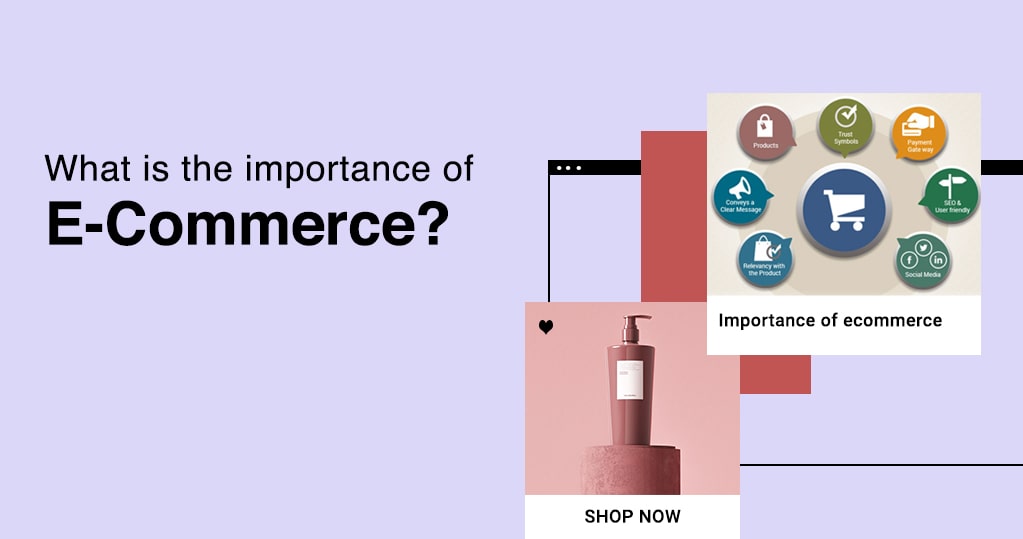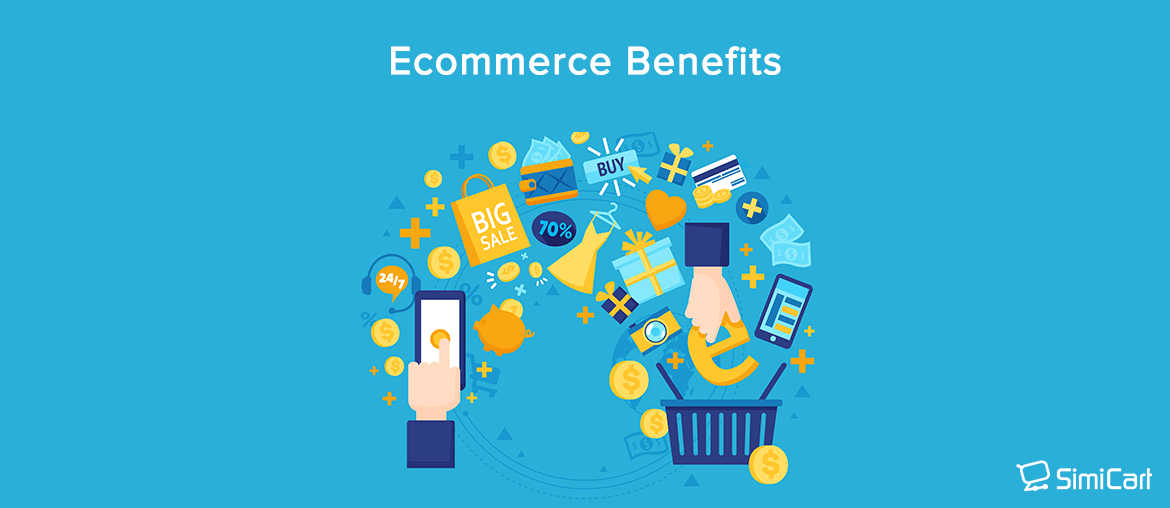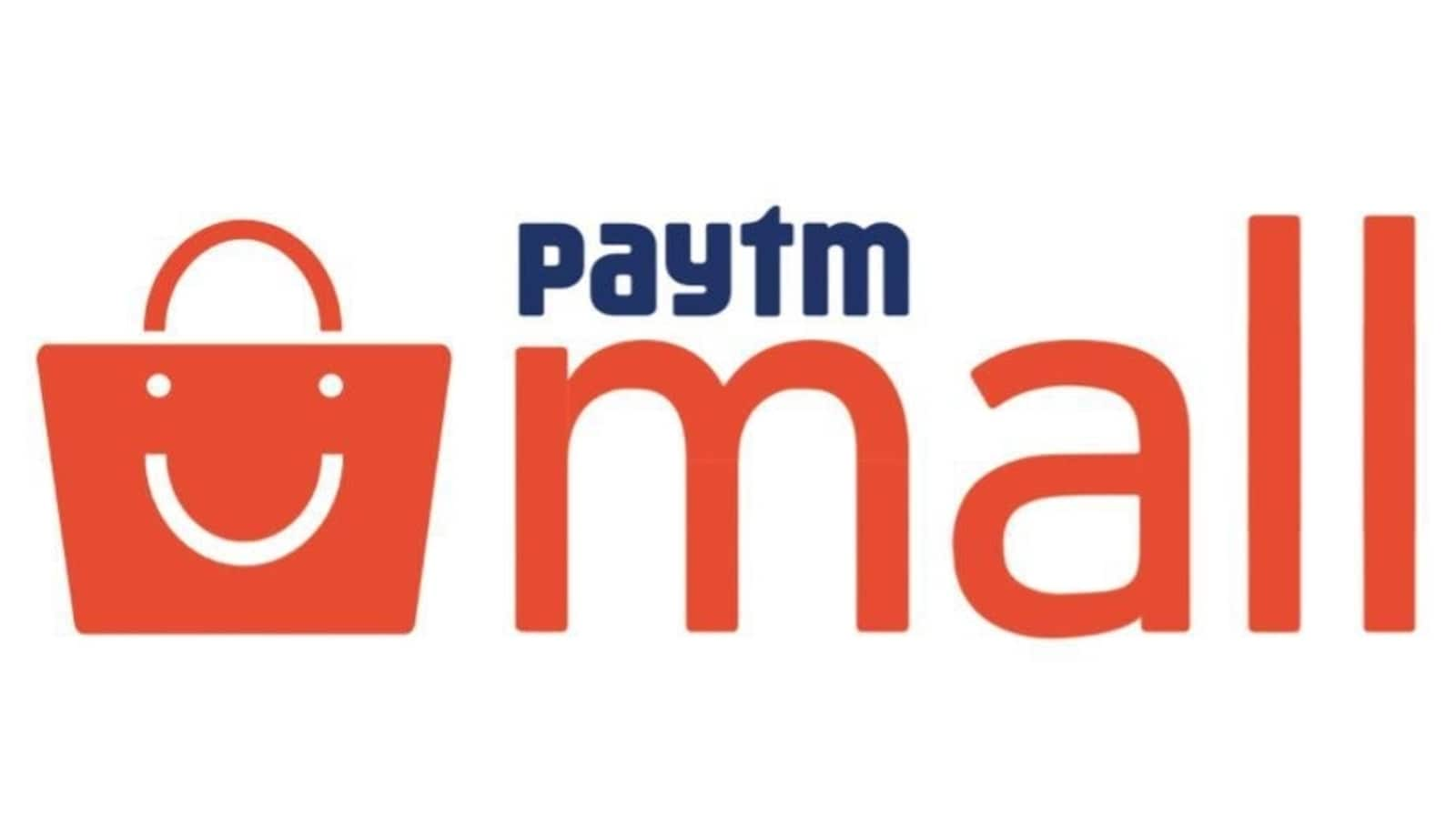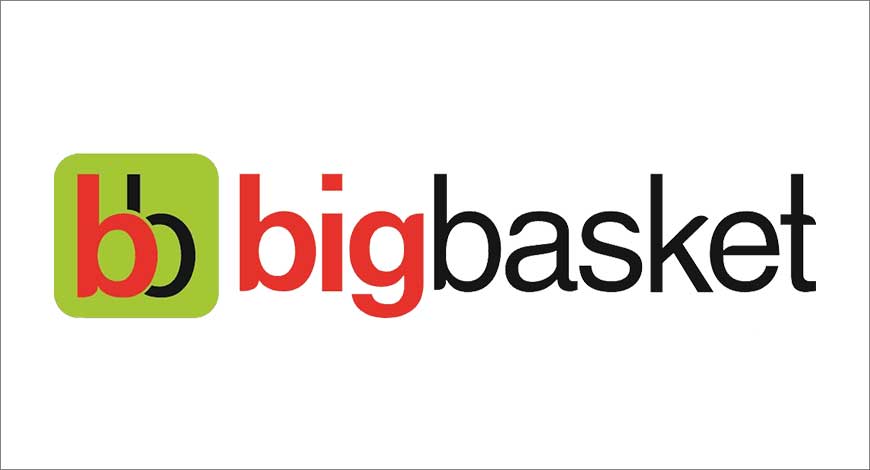Top 10 Best E-Commerce Companies in India 2023

E-commerce companies, also known as electronic commerce companies, are businesses that operate primarily through online platforms and engage in buying and selling products or services over the internet. These companies leverage digital technology and the internet to facilitate various aspects of the commercial transaction, including product browsing, selection, payment processing, and delivery.
E-commerce companies come in different forms and sizes, ranging from small independent online retailers to large multinational corporations. They operate across various industries, including retail, electronics, fashion, beauty, home goods, groceries, and more. Some e-commerce companies specialize in specific niches or product categories, while others offer a wide range of products across multiple categories.
These companies typically have a website or an online marketplace where customers can browse and purchase products or services. They often provide detailed product descriptions, images, customer reviews, and recommendations to help consumers make informed buying decisions. E-commerce companies may also employ various marketing strategies, such as online advertising, email marketing, and social media promotion, to attract customers and drive sales.
In addition to selling products directly to consumers, some e-commerce companies act as intermediaries, connecting buyers and sellers without holding inventory themselves. These companies, known as marketplace platforms, facilitate transactions between third-party sellers and customers, earning revenue through fees or commissions on each sale.
E-commerce companies have revolutionized the way people shop and have significantly impacted traditional brick-and-mortar retail. They offer convenience, broader product selections, competitive pricing, and the ability to shop from anywhere at any time. Major e-commerce companies include Amazon, Alibaba, eBay, Walmart, JD.com, Shopify, and many others.
Why E-Commerce Companies are important

E-commerce companies play a crucial role in the modern business landscape and have become increasingly important for several reasons:
Global Reach: E-commerce allows businesses to expand their reach beyond geographical limitations. Companies can reach customers around the world, overcoming traditional barriers such as distance and time zones. This global accessibility opens up new markets and opportunities for growth.
Convenience and Accessibility: E-commerce offers unparalleled convenience for both businesses and consumers. Customers can browse and purchase products or services at any time from the comfort of their homes or on the go using mobile devices. E-commerce eliminates the need for physical store visits, saving time and effort. For businesses, it provides the flexibility of operating 24/7 without the constraints of physical store hours.
Wider Product Selection: E-commerce allows businesses to offer a broader range of products or services compared to traditional retail stores. Online platforms enable businesses to showcase and sell an extensive inventory without the limitations of physical shelf space. This variety gives consumers more choices and the ability to find niche or specialized products that may not be readily available in their local area.
Cost Efficiency: E-commerce can be cost-effective for both businesses and consumers. Online stores typically have lower overhead costs compared to physical retail stores, such as reduced expenses for rent, utilities, and staffing. This cost advantage can translate into competitive pricing for customers. Additionally, e-commerce eliminates the need for customers to travel to physical stores, saving on transportation costs.
Data-driven Insights: E-commerce companies have access to vast amounts of customer data, including browsing habits, purchase history, and demographics. By analyzing this data, businesses can gain valuable insights into customer preferences, behavior, and trends. This information enables personalized marketing, targeted advertising, and the ability to tailor product offerings to specific customer segments.
Improved Customer Experience: E-commerce companies focus on enhancing the overall customer experience. They invest in user-friendly interfaces, intuitive navigation, secure payment systems, and efficient order fulfillment and delivery processes. E-commerce also facilitates customer reviews and ratings, enabling shoppers to make informed purchase decisions based on feedback from other customers.
Business Scalability: E-commerce provides businesses with the potential for rapid scalability. With the right infrastructure and technology, companies can handle increasing order volumes without significant physical expansion. E-commerce platforms can easily accommodate a growing customer base and enable businesses to quickly adapt to market demands and trends.
Disruption of Traditional Retail: E-commerce has disrupted traditional retail models, challenging brick-and-mortar stores to adapt and innovate. While this has posed challenges for some traditional retailers, it has also created opportunities for them to embrace e-commerce and omnichannel strategies to stay competitive.
History of E-Commerce Companies in Inda
The history of e-commerce companies in India dates back to the late 1990s and has witnessed significant growth and evolution since then. Here’s a brief overview of the key milestones and developments in the history of e-commerce in India:
Early Years (Late 1990s – Early 2000s):
The initial phase of e-commerce in India was marked by the establishment of online classifieds and marketplace platforms such as Sulekha, IndiaMART, and Rediff Shopping.
In 1999, Indiaplaza (later known as Fabmall) was launched as one of India’s first online retailers, offering books, electronics, and lifestyle products.
Dot-com Boom and Bust (Late 1990s – Early 2000s):
The dot-com boom in the late 1990s led to the emergence of several e-commerce startups in India. However, the subsequent dot-com bust in the early 2000s resulted in the closure of many e-commerce ventures.
Despite the challenges, some players like Flipkart (founded in 2007) and Myntra (founded in 2007, later acquired by Flipkart) laid the foundation for the future growth of e-commerce in India.
Rise of E-commerce Giants (Mid-2000s – 2010s):
The mid-2000s witnessed the entry of major players in the Indian e-commerce market. eBay India (now known as eBay India Pvt. Ltd.) launched in 2004, followed by Amazon India (launched as Junglee.com in 2012 and rebranded as Amazon.in in 2013).
Flipkart, founded by Sachin Bansal and Binny Bansal in 2007, started as an online bookstore and later expanded to become one of India’s largest e-commerce companies, offering a wide range of products.
Snapdeal, an online marketplace, was founded in 2010 and gained popularity as a platform for small and medium-sized businesses to sell their products online.
Government Support and Policy Changes (2010s):
The Indian government implemented various policy changes and initiatives to boost e-commerce growth. In 2016, the government allowed 100% foreign direct investment (FDI) in the marketplace model of e-commerce, opening doors for global players like Amazon to expand their operations.
The introduction of the Goods and Services Tax (GST) in 2017 aimed to simplify the tax structure and streamline e-commerce transactions.
Increasing Investments and Consolidation (2010s):
The Indian e-commerce sector attracted significant investments from domestic and international investors. Companies like Flipkart, Snapdeal, and Paytm Mall secured substantial funding to fuel their expansion and compete in the market.
In 2018, Walmart acquired a majority stake in Flipkart, marking one of the largest e-commerce deals globally and highlighting the growing significance of the Indian e-commerce market.
Consolidation and partnerships became prominent as companies sought to strengthen their market position. For example, in 2020, Reliance Industries launched JioMart, an online grocery platform, leveraging its extensive retail network.
E-commerce Expansion and Diversification (2010s – Present):
E-commerce in India witnessed rapid growth and diversification, encompassing various sectors such as electronics, fashion, groceries, food delivery, travel, and more.
New entrants like Paytm Mall, Club Factory, and ShopClues emerged, contributing to the competitive landscape.
International players like Alibaba’s AliExpress and Shein also gained traction among Indian consumers.
The emergence of digital payment platforms like Paytm, PhonePe, and Google Pay further facilitated
Benedfits of E-Commerce Companies

E-commerce companies, which operate online and facilitate the buying and selling of goods and services over the internet, offer several benefits that have transformed the way business is conducted. Here are some key advantages of e-commerce companies:
Global Reach: E-commerce eliminates geographical barriers, allowing businesses to reach customers worldwide. Companies can expand their customer base and target specific markets without the need for physical store locations in each region.
24/7 Availability: E-commerce enables businesses to operate round the clock, providing customers with the convenience of making purchases at any time. This flexibility increases sales potential and customer satisfaction.
Cost Savings: E-commerce eliminates the need for traditional brick-and-mortar stores, reducing overhead costs such as rent, utilities, and maintenance. Additionally, fewer staff members may be required to operate an online store, leading to additional savings.
Expanded Product Range: E-commerce allows businesses to offer a wider range of products and services compared to physical stores. Online platforms can showcase an extensive inventory without the limitations of physical shelf space, giving customers more options to choose from.
Personalization and Targeted Marketing: E-commerce companies can leverage customer data and analytics to personalize the shopping experience. By analyzing customer preferences and behavior, businesses can provide personalized recommendations and targeted marketing campaigns, leading to higher conversion rates.
Enhanced Customer Insights: E-commerce platforms provide businesses with valuable customer data, including purchase history, browsing patterns, and demographic information. This information can be utilized to gain insights into customer preferences, improve products or services, and refine marketing strategies.
Streamlined Operations: E-commerce enables businesses to automate various processes, including inventory management, order fulfillment, and payment processing. This automation leads to increased efficiency, reduced errors, and faster order processing, ultimately enhancing the overall customer experience.
Lower Barrier to Entry: E-commerce offers a lower barrier to entry for entrepreneurs and small businesses compared to traditional retail. Setting up an online store requires less capital investment, and digital marketing tools make it easier to promote products and reach potential customers.
Improved Customer Service: E-commerce allows for quick and convenient customer support through various channels such as live chat, email, or social media. Prompt responses to customer inquiries and efficient handling of returns or exchanges can significantly enhance customer satisfaction and loyalty.
Data-driven Decision Making: E-commerce businesses have access to real-time data and analytics, enabling them to make data-driven decisions. By monitoring key performance indicators (KPIs) such as conversion rates, customer acquisition costs, and customer lifetime value, companies can optimize their strategies and improve overall performance.
Best E-Commerce Companies in India

Flipkart
Amazon India
Myntra
Snapdeal
Paytm Mall
Ajio
ShopClues
Nykaa
BigBasket
Grofers
Flipkart

Flipkart is one of the largest e-commerce companies in India. It was founded in 2007 by Sachin Bansal and Binny Bansal, and it is headquartered in Bangalore, Karnataka. Initially starting as an online bookstore, Flipkart has grown into a multi-category marketplace, offering a wide range of products across various categories.
Flipkart provides a platform for sellers to showcase their products and connects them with customers across the country. The company offers a diverse range of products, including electronics, fashion, home appliances, furniture, books, beauty products, and more. It has gained popularity for its competitive prices, extensive product selection, and customer-friendly services.
Over the years, Flipkart has expanded its operations and diversified its services. It launched its own private label brands, introduced innovations like cash-on-delivery and easy return policies, and established strategic partnerships with various brands and sellers. Flipkart also acquired several companies to enhance its offerings and strengthen its position in the market.
In 2018, Flipkart was acquired by Walmart, a global retail giant, in one of the largest e-commerce deals in the world. This acquisition has further fueled Flipkart’s growth and provided it with additional resources and expertise to expand its reach and offerings.
Flipkart continues to be a significant player in the Indian e-commerce industry, competing with other major players like Amazon India. The company’s focus on customer satisfaction, reliable delivery, and competitive pricing has helped it maintain a strong presence in the Indian market.
Amazon India

Amazon India is the Indian division of the global e-commerce giant, Amazon. It was launched in 2013 and has since become one of the leading e-commerce platforms in India. Amazon India operates as a marketplace, connecting buyers and sellers across a wide range of products.
Amazon India offers a vast selection of products, including electronics, fashion, home goods, books, beauty products, appliances, and more. It caters to both individual sellers and large brands, providing them with a platform to showcase and sell their products to customers across the country.
The company has made significant investments in building a robust logistics and delivery network in India. It offers various delivery options, including fast and reliable shipping services like Amazon Prime, which provides subscribers with expedited shipping, exclusive deals, and access to streaming services.
Amazon India has introduced several programs and initiatives to enhance the customer experience. For instance, it launched Amazon Prime Video, a streaming service offering a wide range of movies, TV shows, and original content. It also introduced Amazon Pay, a digital wallet that allows customers to make payments seamlessly on the platform and partner websites.
To support small and medium-sized businesses in India, Amazon launched the “Amazon Saheli” and “Amazon Karigar” programs, which focus on empowering women entrepreneurs and promoting traditional Indian crafts and artisans, respectively.
The company has also made efforts to cater to customers from smaller towns and rural areas through initiatives like Amazon Easy and Amazon Pantry, which provide convenient shopping options for customers with limited access to physical stores.
Amazon India faces stiff competition from local players like Flipkart and other e-commerce companies in the Indian market. The company continues to invest in expanding its operations, improving customer experience, and offering competitive pricing to maintain and strengthen its position in the Indian e-commerce industry.
Myntra

Myntra is a prominent fashion and lifestyle e-commerce platform in India. It was founded in 2007 and initially operated as a personalized gift retailer before transitioning into a fashion-focused online marketplace. In 2014, Myntra was acquired by Flipkart, which is another major e-commerce company in India.
Myntra offers a wide range of fashion and lifestyle products for men, women, and children. It collaborates with both Indian and international brands to provide customers with a diverse selection of clothing, footwear, accessories, beauty products, and home decor items.
One of the key features of Myntra is its focus on fashion trends and styles. The platform curates collections and showcases the latest fashion trends to help customers discover and stay up to date with current styles. It also offers personalized recommendations based on customers’ preferences, browsing history, and previous purchases.
Myntra has gained popularity for its user-friendly interface, seamless shopping experience, and reliable delivery services. It offers multiple payment options, including cash-on-delivery, and provides easy returns and exchanges to ensure customer satisfaction.
The platform has also launched several private label brands that are exclusively available on Myntra. These brands cater to various fashion categories and offer affordable yet stylish options to customers.
To enhance the shopping experience, Myntra organizes seasonal sales, discount events, and fashion campaigns, such as the Myntra Fashion Week, which features exclusive launches, celebrity collaborations, and runway-inspired collections.
In recent years, Myntra has expanded its reach by launching the Myntra app and focusing on mobile commerce. The app allows customers to browse and shop conveniently from their smartphones, offering a seamless and personalized shopping experience.
Myntra continues to be a popular choice for fashion enthusiasts and shoppers looking for a wide range of fashion products. Its integration with the Flipkart ecosystem has further strengthened its position in the Indian e-commerce market, allowing it to leverage synergies and provide a comprehensive shopping experience to customers.
Snapdeal

Snapdeal is an e-commerce marketplace based in India. It was founded in 2010 by Kunal Bahl and Rohit Bansal and is headquartered in New Delhi. Snapdeal operates as a platform that connects buyers and sellers, offering a wide range of products across various categories.
Snapdeal features a diverse selection of products, including electronics, fashion, home goods, appliances, beauty products, books, and more. It acts as an intermediary between sellers and customers, providing a platform for sellers to list and sell their products to a large customer base.
The platform is known for its extensive seller network, encompassing both individual sellers and established brands. It offers a wide variety of options to customers and provides sellers with the opportunity to reach a larger audience.
Snapdeal focuses on providing competitive prices and offers deals and discounts on various products. The platform often features special promotions and campaigns, such as daily deals and festive season sales, to attract customers and provide them with value-for-money offerings.
In addition to its product offerings, Snapdeal has introduced several initiatives to enhance the customer experience. It provides reliable delivery services, easy payment options, and customer-friendly policies for returns and exchanges.
Snapdeal has expanded its operations beyond metropolitan cities and targets customers in smaller towns and rural areas as well. It aims to bridge the gap between online retail and customers in areas with limited access to physical stores, offering them a convenient and wide-ranging shopping experience.
While Snapdeal was once considered one of the major players in the Indian e-commerce market, it faced increased competition from larger players like Flipkart and Amazon India. However, Snapdeal continues to operate and serve its customer base, with a focus on providing affordable options, a diverse product range, and a user-friendly shopping platform.
Paytm Mall

Paytm Mall is an e-commerce platform that is part of the Paytm digital payment ecosystem in India. It was launched in 2017 by One97 Communications, the parent company of Paytm. Paytm Mall operates as a marketplace, connecting buyers and sellers across various product categories.
Paytm Mall offers a wide range of products, including electronics, fashion, home appliances, groceries, beauty products, and more. It leverages the Paytm digital wallet infrastructure to provide customers with a seamless shopping experience, integrating payment options directly into the platform.
One of the key features of Paytm Mall is its focus on providing competitive prices and attractive cashback offers. Customers can earn cashback rewards on their purchases, which can be used for future transactions or transferred to their Paytm digital wallets.
Paytm Mall also emphasizes its “Mall Assurance” program, which ensures that products listed on the platform are sourced directly from authorized sellers, offering customers a reliable and authentic shopping experience.
To enhance customer convenience, Paytm Mall provides multiple payment options, including digital wallets, debit/credit cards, and net banking. It also offers quick and reliable delivery services to various locations across India.
In addition to its product offerings, Paytm Mall has introduced several initiatives to support small and medium-sized businesses (SMBs) in India. It provides tools and resources for SMBs to set up their online stores on the platform, enabling them to reach a wider customer base and expand their business.
Paytm Mall has faced competition from other major e-commerce players in India, but its integration with the larger Paytm ecosystem and its focus on digital payments have contributed to its popularity among customers. The platform continues to evolve and expand its services to cater to the evolving needs of Indian consumers and businesses.
Ajio

Ajio is an Indian e-commerce platform that specializes in fashion and lifestyle products. It was launched in 2016 by Reliance Retail, a subsidiary of Reliance Industries Ltd, one of India’s largest conglomerates.
Ajio offers a curated selection of clothing, accessories, footwear, and beauty products for men, women, and children. The platform focuses on providing trendy and fashionable options to its customers. Ajio collaborates with both established and emerging Indian designers, as well as international brands, to offer a diverse and unique collection of fashion products.
One of the key features of Ajio is its emphasis on premium and high-quality products. It offers a blend of curated collections and exclusive merchandise that cater to different tastes and style preferences. Ajio also features its own private label brands, offering customers a range of options at various price points.
The platform leverages technology and data-driven insights to personalize the shopping experience for its customers. It provides recommendations based on browsing history, purchase behavior, and preferences, helping customers discover new styles and products.
Ajio places importance on customer satisfaction and offers easy returns, exchanges, and refund policies. It provides multiple payment options, including cash-on-delivery, digital wallets, and online banking, to ensure convenience for customers.
Additionally, Ajio has a strong online presence with its website and dedicated mobile app, enabling customers to browse and shop conveniently from their preferred devices. The app offers a seamless and user-friendly interface for a smooth shopping experience.
Ajio has gained popularity among fashion enthusiasts and shoppers looking for stylish and on-trend fashion options. Its focus on curating fashionable collections, offering a mix of Indian and international brands, and providing personalized recommendations has helped it establish a strong position in the Indian e-commerce market.
ShopClues

ShopClues is an Indian e-commerce marketplace that was launched in 2011. It operates as a platform that connects buyers and sellers, offering a wide range of products across various categories.
ShopClues provides a diverse selection of products, including electronics, fashion, home goods, mobiles, appliances, beauty products, and more. The platform caters to both individual sellers and established brands, allowing them to list and sell their products to a large customer base.
One of the key features of ShopClues is its focus on providing value-for-money products at competitive prices. It aims to cater to the needs of customers looking for affordable options without compromising on quality. ShopClues often features deals, discounts, and promotional campaigns to attract customers and offer them cost-effective shopping options.
The platform has a wide network of sellers, including both local and regional sellers, which allows for a diverse range of products and choices. ShopClues aims to provide customers with access to a wide variety of items from different sellers, offering them a unique and varied shopping experience.
ShopClues focuses on providing a user-friendly and intuitive interface for customers to browse and shop conveniently. It offers multiple payment options, including cash-on-delivery, credit/debit cards, and digital wallets, to ensure flexibility and convenience for customers.
The platform also places emphasis on customer service and provides reliable delivery services, easy returns, and customer support for inquiries and concerns.
While ShopClues was once considered one of the major players in the Indian e-commerce market, it has faced increased competition from larger players like Flipkart and Amazon India. However, it continues to operate and serve its customer base, focusing on providing affordable options, a diverse product range, and a user-friendly platform for online shopping.
Nykaa

Nykaa is a popular e-commerce platform in India specializing in beauty and cosmetics products. It was founded in 2012 by Falguni Nayar and has since become one of the leading destinations for beauty and personal care shopping in India.
Nykaa offers a wide range of products across various categories, including skincare, haircare, makeup, fragrances, personal care, wellness, and more. It features a curated collection of both national and international brands, providing customers with a diverse selection of high-quality beauty products.
One of the key features of Nykaa is its focus on offering a seamless and personalized shopping experience. The platform provides detailed product descriptions, customer reviews, and ratings to help customers make informed purchasing decisions. It also offers personalized recommendations based on individual preferences, previous purchases, and browsing history.
Nykaa has gained popularity for its commitment to providing genuine and authentic products. It sources its inventory directly from authorized distributors and brands, ensuring the authenticity and quality of the products it offers.
In addition to its e-commerce platform, Nykaa has expanded its presence through physical stores across various cities in India. The Nykaa offline stores provide customers with an opportunity to explore and experience products in person, offering a blended online-offline shopping experience.
Nykaa has also introduced its own private label brands, offering customers a range of affordable and high-quality beauty products. These brands cover various categories, including skincare, makeup, and personal care.
The platform regularly organizes sales, offers discounts, and introduces exclusive collaborations and limited-edition collections to attract and engage customers. Nykaa has also launched a beauty community, Nykaa Network, where customers can connect, share beauty tips, and participate in discussions.
With its strong focus on beauty and cosmetics, commitment to authenticity, and customer-centric approach, Nykaa has established itself as a trusted and popular destination for beauty enthusiasts and shoppers in India.
BigBasket

BigBasket is one of India’s leading online grocery delivery platforms. It was founded in 2011 by Hari Menon, Vipul Parekh, Abhinay Choudhari, and V.S. Sudhakar. BigBasket enables customers to order a wide range of grocery items, including fresh produce, pantry staples, household essentials, personal care products, and more, through its website and mobile app.
Here are some key features and highlights of BigBasket:
Extensive Product Range: BigBasket offers a vast selection of grocery products, including fruits, vegetables, dairy, bread, rice, pulses, spices, snacks, beverages, cleaning supplies, and much more. It caters to the diverse needs of customers and provides options from various national and regional brands.
Freshness Guarantee: BigBasket prioritizes the quality and freshness of its products. It maintains a strong supply chain and works closely with farmers, producers, and suppliers to ensure the availability of fresh and high-quality products to its customers.
Convenient Delivery Options: BigBasket provides flexible and convenient delivery options to customers. It offers scheduled deliveries, express deliveries, and a “BB Instant” feature for quick delivery of essential items. Customers can choose their preferred time slots for delivery to suit their convenience.
Smart Basket and Savings: BigBasket offers a “Smart Basket” feature that suggests complementary products and offers bundle deals to help customers save time and money. It provides discounts, offers, and loyalty programs to enhance the value proposition for its customers.
Subscriptions and Repeat Orders: BigBasket allows customers to set up subscriptions for regularly purchased items, ensuring hassle-free repeat orders. This feature enables customers to automate their grocery shopping and ensures the availability of essential items at regular intervals.
Specialty Stores and Gourmet Selection: BigBasket features dedicated sections for specialty stores, including organic products, international foods, gourmet items, and more. It offers a curated selection of premium and unique products for customers with specific preferences.
Customer Service and Support: BigBasket has a customer support team that assists customers with queries, concerns, and order-related issues. It strives to provide a satisfactory shopping experience and promptly addresses customer feedback.
Expansion and Presence: BigBasket has expanded its operations across several cities in India and continues to grow its footprint. It has established strategic partnerships and acquired smaller grocery delivery platforms to strengthen its position in the market.
Grofers
Grofers is a popular online grocery delivery platform in India. It was founded in 2013 by Albinder Dhindsa and Saurabh Kumar and is headquartered in Gurugram, Haryana. Grofers operates as a mobile app-based platform, allowing customers to order a wide range of grocery and household items for home delivery.
Here are some key features and highlights of Grofers:
Comprehensive Product Range: Grofers offers a wide selection of grocery items, including fresh produce, staples, dairy products, packaged foods, personal care items, household essentials, baby care products, and more. It partners with local stores and suppliers to provide customers with a diverse range of products.
Convenient Mobile App: Grofers operates primarily through its user-friendly mobile app, available for both iOS and Android devices. Customers can browse the product catalog, add items to their cart, and place orders with ease. The app also allows for easy tracking of orders and offers personalized recommendations based on customer preferences.
Multiple Delivery Options: Grofers provides flexible delivery options to cater to customer preferences. Customers can choose their preferred time slots for delivery, including same-day and next-day delivery, ensuring convenience and timely arrival of groceries.
Smart Bachat Club: Grofers offers a membership program called the “Smart Bachat Club” that provides exclusive benefits to members, such as additional discounts, free deliveries, and priority access to sales and promotions. The membership program helps customers save money and enjoy additional perks.
Savings and Offers: Grofers regularly features discounts, offers, and deals on a wide range of products. It highlights special promotions, combo packs, and savings on bulk purchases to help customers get the best value for their money.
Quality Assurance: Grofers places importance on ensuring the quality and freshness of the products it delivers. It maintains a strong supply chain and works with trusted local vendors and brands to source and deliver high-quality items to customers.
Customer Support: Grofers has a customer support team that assists customers with queries, order-related issues, and concerns. It strives to provide timely and helpful support to enhance the overall shopping experience.
Expansion and Presence: Grofers has expanded its operations to multiple cities in India and continues to grow its presence. It focuses on makibbng grocery shopping more convenient for customers, especially those in urban areas.


